Leo XIV and the Popes: Naturalism, religious liberty and 'experience'
Is Leo XIV deliberately alluding to the pre-conciliar magisterium?
Is Leo XIV deliberately alluding to the pre-conciliar magisterium?
Audience with the Diplomatic Corps accredited to the Holy See
Friday 16 May 2025
In this regard, I believe that religions and interreligious dialogue can make a fundamental contribution to fostering a climate of peace. This naturally requires full respect for religious freedom in every country, since religious experience is an essential dimension of the human person.
(WM Review)—In this piece, we’ll take a close look at this comment, and show that…
Prevost’s reference to inter-religious efforts to secure “a climate of peace” (16 May) are contrary to Pope Pius X's Notre Charge Apostolique
His statement that the above “naturally requires full respect for religious freedom in every country,” (16 May) contrary to all the post-revolutionary and pre-conciliar popes.
His affirmation of religious experience as an “essential dimension of the human person” (16 May)—which is true in itself but in the context given, appears to be a reference to Pope Pius X's Pascendi Dominici Gregis, against the modernists—who, in the relevant place, also links it to the above point of religious liberty.
Leo XIV
In this regard, I believe that religions and interreligious dialogue can make a fundamental contribution to fostering a climate of peace.
Pope St Pius X, Notre Charge Apostolique
Here we have, founded by Catholics, an inter-denominational association that is to work for the reform of civilization, an undertaking which is above all religious in character; for there is no true civilization without a moral civilization, and no true moral civilization without the true religion: it is a proven truth, a historical fact.
The new Sillonists cannot pretend that they are merely working on “the ground of practical realities” where differences of belief do not matter. Their leader is so conscious of the influence which the convictions of the mind have upon the result of the action, that he invites them, whatever religion they may belong to, “to provide on the ground of practical realities, the proof of the excellence of their personal convictions.” And with good reason: indeed, all practical results reflect the nature of one’s religious convictions, just as the limbs of a man down to his finger-tips, owe their very shape to the principle of life that dwells in his body. […]
When we consider the forces, knowledge, and supernatural virtues which are necessary to establish the Christian City, and the sufferings of millions of martyrs, and the light given by the Fathers and Doctors of the Church, and the self-sacrifice of all the heroes of charity, and a powerful hierarchy ordained in heaven, and the streams of Divine Grace—the whole having been built up, bound together, and impregnated by the life and spirit of Jesus Christ, the Wisdom of God, the Word made man—when we think, I say, of all this, it is frightening to behold new apostles eagerly attempting to do better by a common interchange of vague idealism and civic virtues.
What are they going to produce? What is to come of this collaboration? A mere verbal and chimerical construction in which we shall see, glowing in a jumble, and in seductive confusion, the words Liberty, Justice, Fraternity, Love, Equality, and human exultation, all resting upon an ill-understood human dignity. It will be a tumultuous agitation, sterile for the end proposed, but which will benefit the less Utopian exploiters of the people.
Leo XIV
This naturally requires full respect for religious freedom in every country…
Pope Pius VI, Quod Aliquantum, 1791
[The civil constitution of France] establishes, as a right of man in society, that absolute liberty which not only grants the right of not being harassed because of one’s religious opinions, but which also grants a license to think, to write, and even to print with impunity anything suggested by the most disturbed imagination; a monstrous right.1
Pope Pius VIII, Post Tam Diuturnas, 1814
But a much more grave, and indeed very bitter, sorrow increased in Our heart - a sorrow by which We confess that We were crushed, overwhelmed and torn in two - from the twenty-second article of the constitution in which We saw, not only that “liberty of religion and of conscience” (to use the same words found in the article) were permitted by the force of the constitution, but also that assistance and patronage were promised both to this liberty and also to the ministers of these different forms of “religion.”
There is certainly no need of many words, in addressing you, to make you fully recognize by how lethal a wound the Catholic religion in France is struck by this article. For when the liberty of all “religions” is indiscriminately asserted, by this very fact truth is confounded with error and the holy and immaculate Spouse of Christ, the Church, outside of which there can be no salvation, is set on a par with the sects of heretics and with Judaic perfidy itself. For when favour and patronage is promised even to the sects of heretics and their ministers, not only their persons, but also their very errors, are tolerated and fostered: a system of errors in which is contained that fatal and never sufficiently to be deplored heresy which, as St. Augustine says (de Haeresibus, no.72), “asserts that all heretics proceed correctly and tell the truth: which is so absurd that it seems incredible to me.”
Gregory XVI, Mirari Vos, 1832
We now come to another and most fruitful cause of the evils which at present afflict the Church and which We so bitterly deplore; We mean indifferentism, or that fatal opinion everywhere diffused by the craft of the wicked, that men can by the profession of any faith obtain the eternal salvation of their souls, provided their life conforms to justice and probity....
From this poisoned source of indifferentism flows that false and absurd, or rather extravagant, maxim that liberty of conscience should be established and guaranteed to each man.
Pope Pius IX, Quanta Cura, 1864
Condemned: “ ...the best condition of human society is that wherein no duty is recognized by the Government of correcting, by enacted penalties, the violators of the Catholic Religion, except when the maintenance of the public peace requires it.”
Condemned: “ ...the liberty of conscience and of worship is the peculiar (or inalienable) right of every man. ”
Condemned: “… liberty of conscience and worship is each man’s personal right, which ought to be legally proclaimed and asserted in every rightly constituted society; and that a right resides in the citizens to an absolute liberty, which should be restrained by no authority whether ecclesiastical or civil, whereby they may be able openly and publicly to manifest and declare any of their ideas whatever, either by word of mouth, by the press, or in any other way.”
Pope Pius IX, Syllabus of Errors, 1864
Condemned 15: Every man is free to embrace and profess that religion which, guided by the light of reason, he shall consider true. — Allocution “Maxima quidem,” June 9, 1862; Damnatio “Multiplices inter,” June 10, 1851.
Condemned 77: In the present day it is no longer expedient that the Catholic religion should be held as the only religion of the State, to the exclusion of all other forms of worship. — Allocution “Nemo vestrum,” July 26, 1855.
Condemned 79: Moreover, it is false that the civil liberty of every form of worship, and the full power, given to all, of overtly and publicly manifesting any opinions whatsoever and thoughts, conduce more easily to corrupt the morals and minds of the people, and to propagate the pest of indifferentism. — Allocution “Nunquam fore,” Dec. 15, 1856.
Leo XIII, Immortale Dei, 1885
[On the revolutionary principles of the eighteenth century]
25. The authority of God is passed over in silence, just as if there were no God; or as if He cared nothing for human society; or as if men, whether in their individual capacity or bound together in social relations, owed nothing to God; or as if there could be a government of which the whole origin and power and authority did not reside in God Himself. Thus, as is evident, a State becomes nothing but a multitude which is its own master and ruler. And since the people is declared to contain within itself the spring-head of all rights and of all power, it follows that the State does not consider itself bound by any kind of duty toward God. Moreover, it believes that it is not obliged to make public profession of any religion; or to inquire which of the very many religions is the only one true; or to prefer one religion to all the rest; or to show to any form of religion special favour; but, on the contrary, is bound to grant equal rights to every creed, so that public order may not be disturbed by any particular form of religious belief.
26. And it is a part of this theory that all questions that concern religion are to be referred to private judgment; that every one is to be free to follow whatever religion he prefers, or none at all if he disapprove of all. From this the following consequences logically flow: that the judgment of each one's conscience is independent of all law; that the most unrestrained opinions may be openly expressed as to the practice or omission of divine worship; and that every one has unbounded license to think whatever he chooses and to publish abroad whatever he thinks. […]
34. Doctrines such as these, which cannot be approved by human reason, and most seriously affect the whole civil order, Our predecessors the Roman Pontiffs (well aware of what their apostolic office required of them) have never allowed to pass uncondemned. Thus, Gregory XVI in his encyclical letter Mirari Vos, dated August 15, 1832, inveighed with weighty words against the sophisms which even at his time were being publicly inculcated-namely, that no preference should be shown for any particular form of worship; that it is right for individuals to form their own personal judgments about religion; that each man's conscience is his sole and all-sufficing guide; and that it is lawful for every man to publish his own views, whatever they may be, and even to conspire against the State. […] To the like effect, also, as occasion presented itself, did Pius IX brand publicly many false opinions which were gaining ground, and afterwards ordered them to be condensed in summary form in order that in this sea of error Catholics might have a light which they might safely follow.
35. From these pronouncements of the Popes it is evident that the origin of public power is to be sought for in God Himself, and not in the multitude, and that it is repugnant to reason to allow free scope for sedition. Again, that it is not lawful for the State, any more than for the individual, either to disregard all religious duties or to hold in equal favour different kinds of religion; that the unrestrained freedom of thinking and of openly making known one's thoughts is not inherent in the rights of citizens, and is by no means to be reckoned worthy of favour and support.
Leo XIII, E Giunto, 1889
But it would be superfluous to insist on these reflections. On other occasions, in public documents addressed to the Catholic world, We have demonstrated how erroneous is the doctrine of those who, under the seductive name of “liberty of worship,” proclaim the legal apostasy of society from its Divine Author.
Read also:
Leo XIV
… since religious experience is an essential dimension of the human person.
Discussion of “religious experience” is obviously not per se wrong.
However, it is notable that “religious experience” is a central theme in Pope St Pius X’s encyclical Pascendi Dominici Gregis, on the errors of the modernists. As an example of Pope St Pius X’s treatment of religious experience—which also links the concept with the necessity of endorsing religious liberty, as does Prevost—see below:
Pope St Pius X, Pascendi Dominici Gregis
14. […] For the Modernist Believer, on the contrary, it is an established and certain fact that the divine reality does really exist in itself and quite independently of the person who believes in it. If you ask on what foundation this assertion of the Believer rests, they answer: In the experience of the individual. On this head the Modernists differ from the Rationalists only to fall into the opinion of the Protestants and pseudo-mystics.
This is their manner of putting the question: In the religious sentiment one must recognise a kind of intuition of the heart which puts man in immediate contact with the very reality of God, and infuses such a persuasion of God's existence and His action both within and without man as to excel greatly any scientific conviction. They assert, therefore, the existence of a real experience, and one of a kind that surpasses all rational experience. If this experience is denied by some, like the rationalists, it arises from the fact that such persons are unwilling to put themselves in the moral state which is necessary to produce it. It is this experience which, when a person acquires it, makes him properly and truly a believer.
How far off we are here from Catholic teaching we have already seen in the decree of the Vatican Council. We shall see later how, with such theories, added to the other errors already mentioned, the way is opened wide for atheism.
Here it is well to note at once that, given this doctrine of experience united with the other doctrine of symbolism, every religion, even that of paganism, must be held to be true. What is to prevent such experiences from being met within every religion? In fact that they are to be found is asserted by not a few. And with what right will Modernists deny the truth of an experience affirmed by a follower of Islam? With what right can they claim true experiences for Catholics alone? Indeed Modernists do not deny but actually admit, some confusedly, others in the most open manner, that all religions are true.
That they cannot feel otherwise is clear. For on what ground, according to their theories, could falsity be predicated of any religion whatsoever? It must be certainly on one of these two: either on account of the falsity of the religious sentiment or on account of the falsity of the formula pronounced by the mind. Now the religious sentiment, although it may be more perfect or less perfect, is always one and the same; and the intellectual formula, in order to be true, has but to respond to the religious sentiment and to the Believer, whatever be the intellectual capacity of the latter.
In the conflict between different religions, the most that Modernists can maintain is that the Catholic has more truth because it is more living and that it deserves with more reason the name of Christian because it corresponds more fully with the origins of Christianity. That these consequences flow from the premises will not seem unnatural to anybody.
We should note the link that Pius X makes between the modernist concept of “religious experience” and the condemned notion of religious liberty. Further, it should be obvious that the importance of even true religious experience does not require interreligious efforts for natural peace, interreligious dialogue, and the introduction of so-called religious liberty
Pope St Pius X follows the section above with wonderfully appropriate words for our own situation:
But what is amazing is that there are Catholics and priests who, We would fain believe, abhor such enormities yet act as if they fully approved of them. For they heap such praise and bestow such public honour on the teachers of these errors as to give rise to the belief that their admiration is not meant merely for the persons, who are perhaps not devoid of a certain merit, but rather for the errors which these persons openly profess and which they do all in their power to propagate.
Pope St Pius X returns to the theme later, by showing this approach to religious experience leads directly to atheism:
39. […] Can anybody who takes a survey of the whole system be surprised that We should define it as the synthesis of all heresies? Were one to attempt the task of collecting together all the errors that have been broached against the faith and to concentrate the sap and substance of them all into one, he could not better succeed than the Modernists have done. Nay, they have done more than this, for, as we have already intimated, their system means the destruction not of the Catholic religion alone but of all religion. With good reason do the rationalists applaud them, for the most sincere and the frankest among the rationalists warmly welcome the modernists as their most valuable allies.
For let us return for a moment, Venerable Brethren, to that most disastrous doctrine of agnosticism. By it every avenue that leads the intellect to God is barred, but the Modernists would seek to open others available for sentiment and action.
Vain efforts! For, after all, what is sentiment but the reaction of the soul on the action of the intelligence or the senses. Take away the intelligence, and man, already inclined to follow the senses, becomes their slave.
Vain, too, from another point of view, for all these fantasias on the religious sentiment will never be able to destroy common sense, and common sense tells us that emotion and everything that leads the heart captive proves a hindrance instead of a help to the discovery of truth.
We speak, of course, of truth in itself—as for that other purely subjective truth, the fruit of sentiment and action, if it serves its purpose for the jugglery of words, it is of no use to the man who wants to know above all things whether outside himself there is a God into whose hands he is one day to fall.
True, the Modernists do call in experience to eke out their system, but what does this experience add to sentiment? Absolutely nothing beyond a certain intensity and a proportionate deepening of the conviction of the reality of the object. But these two will never make sentiment into anything but sentiment, nor deprive it of its characteristic which is to cause deception when the intelligence is not there to guide it; on the contrary, they but confirm and aggravate this characteristic, for the more intense sentiment is the more it is sentimental.
In matters of religious sentiment and religious experience, you know, Venerable Brethren, how necessary is prudence and how necessary, too, the science which directs prudence. You know it from your own dealings with sounds, and especially with souls in whom sentiment predominates; you know it also from your reading of ascetical books—books for which the Modernists have but little esteem, but which testify to a science and a solidity very different from theirs, and to a refinement and subtlety of observation of which the Modernists give no evidence.
Is it not really folly, or at least sovereign imprudence, to trust oneself without control to Modernist experiences? Let us for a moment put the question: if experiences have so much value in their eyes, why do they not attach equal weight to the experience that thousands upon thousands of Catholics have that the Modernists are on the wrong road? It is, perchance, that all experiences except those felt by the Modernists are false and deceptive? The vast majority of mankind holds and always will hold firmly that sentiment and experience alone, when not enlightened and guided by reason, do not lead to the knowledge of God. What remains, then, but the annihilation of all religion,—atheism? […]
Certainly this suffices to show superabundantly by how many roads Modernism leads to the annihilation of all religion. The first step in this direction was taken by Protestantism; the second is made by Modernism; the next will plunge headlong into atheism.
Conclusion
Despite Prevost’s repeated references to Leo XIII and other pre-conciliar popes, his words deny their teaching in key respects.
These texts also create the suggestion—enhanced by later addresses—that Leo XIV is specifically alluding to the pre-conciliar magisterium and the errors condemned therein. Although this evidence may seem slight in the first of several parts, the suggestion will become clearer as we proceed.
This emerging habit seems to be a deliberate “dog whistling” or “trolling” of those who know the pre-conciliar magisterium, and can see what he is doing.
To many Catholics, the problems of naturalism, religious liberty and modernist notions of “religious experience” are quite foreign, may even seem like peripheral issues. After all, is not the Catechism based around the Creed, prayer, the Commandments and the sacraments?
This is certainly true, in the experience (in a good sense) for all Catholics. But even these four areas of the Catechism are founded on the more fundamental principles assaulted by modernism—and, as we shall see going forward, by Leo XIV himself.
While many are being distracted by his use of the names and vestments of pre-conciliar popes, Prevost has been specifically and systematically signalling—for those who know the pre-conciliar magisterium, and have ears to hear—that he rejects their teaching in its most fundamental aspects.
HELP KEEP THE WM REVIEW ONLINE WITH WM+!
As we expand The WM Review we would like to keep providing free articles for everyone.
Our work takes a lot of time and effort to produce. If you have benefitted from it please do consider supporting us financially.
A subscription gets you access to our exclusive WM+ material, and helps ensure that we can keep writing and sharing free material for all.
(We make our WM+ material freely available to clergy, priests and seminarians upon request. Please subscribe and reply to the email if this applies to you.)
Subscribe to WM+ now to make sure you always receive our material. Thank you!
Further reading:
Follow on Twitter, YouTube and Telegram:
From Lefebvre, Religious Liberty Questioned, p 26.


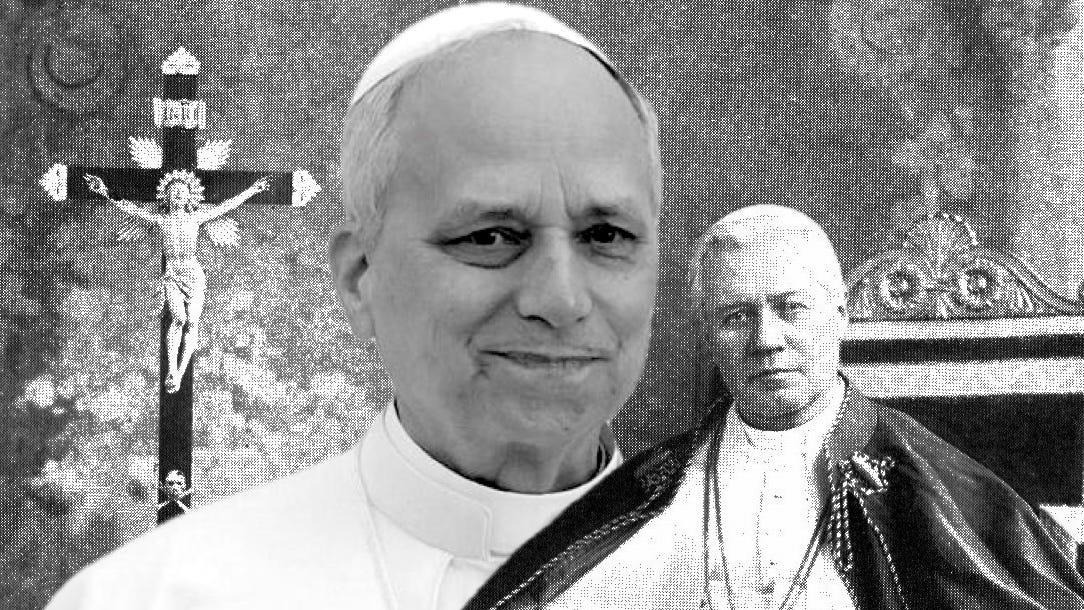
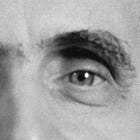

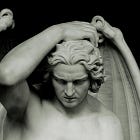

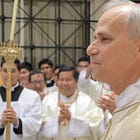

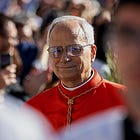
I knew this would happen once Francis died (particularly amongst the conservatives/indulters). Meanwhile, the SSPX is evaluating whether there’s enough of this wishful thinking and manufactured hope and optimism to begin resuming selling its juridical recognition to its people…if that recognition didn’t already happen in 2015, in Argentina.
Do they have no love of Christ at all, the only saviour of their souls and the only hope of those in false religions. Like St Paul said, "They are like clanging gongs." They lack love of God and they present a stumbling block to those who might potentionally convert and be saved. They love neither God nor man.